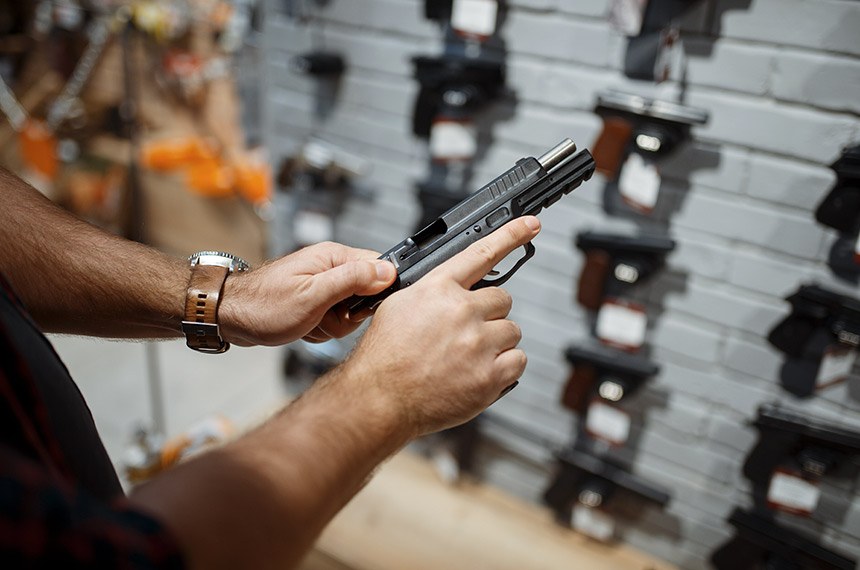RIO DE JANEIRO, BRAZIL – Brazil is becoming a military power that can compete with the biggest in the world! The Brazilian armed forces operate mainly in internal security and in some actions of the United Nations.
With 1,340,000 reserve soldiers and 84.6 million service members, and an annual military budget of about US$19 billion, the country ranks as the 17th most powerful army in the world ahead of Turkey and just behind Spain and Israel. In Latin America, it is the undisputed leader in all categories.
Brazil is also a producer of arms and is therefore indirectly participating in almost all armed conflicts around the world. There are often weapons produced in Brazilian territory being used by soldiers.

Even countries not in battle often resort to the Brazilian arms industry to train their armies, keep their defenses in readiness, or control the population by violent means.
In a ranking led by the United States, Russia, France, China, and Germany, Brazil ranks 23rd among the countries that export the most weapons. Of the 100% of exported weapons, Brazil entered 0.2% in 2021.
Between 2017 and 2021, the countries that bought the most Brazilian weapons were the US, Afghanistan, Indonesia, and Lebanon. The data are from the Stockholm International Peace Research Institute (Sipri).
“From 2017 to 2021, arms imports by South American countries were lower than in any five years in the last half-century. Brazil is the only South American state with substantial arms deliveries,” Sipri researchers point out in the report released on March 14.
BRAZIL EXPORTED US$1.5 BILLION IN 2021
The Brazilian war industry offers a diverse range of manufacturers of the most different military equipment, firearms, ammunition, missiles, aircraft, armored, and explosives.
According to the Ministry of Defense, in 2021, the Brazilian war industry represented 4.46% of the Gross Domestic Product (GDP), with US$1.5 billion in exports and 1.3 million direct and indirect jobs.
“The results show that we are on the right track,” said the former Minister of Defense, Walter Braga Netto, when announcing the number during the 6th BID Brazil Show, International Security and Defense Fair, in Brasilia, at the end of last year.
Besides the BID Brazil, since 2007, Brazil has hosted LAAD, Latin America’s main defense, armament, and war materials fair, receiving visitors, buyers, and exhibitors from all continents.
The sector exports to more than 130 countries in the Americas, Africa, Asia, Europe, and the Middle East. Earlier this month, for example, the giants CBC and MacJee closed deals with Saudi Arabia involving about US$200 million. They will sell ordnance and take over operations of existing factories there.
Jair Bolsonaro recently invited the Crown Prince of Saudi Arabia, Mohamed bin Salman, to visit Brazil and strengthen commercial ties.
Since the beginning of the 21st century, Brazil’s largest military exporter has been Embraer, which sells its Super Tucano aircraft in military and training versions, the ERJ line with military modifications, and its KC-390 freighters to various countries.
Next come companies such as Helibras (Brazilian manufacturer of Airbus Helicopters), Avibras (manufacturer of missiles, rockets, and launching systems), and small arms manufacturers such as Taurus (pistols and revolvers), Boito (shotguns), and Imbel (assault rifles).
ORGAN LISTS BRAZIL AS AN EMERGING SUPPLIER
In one of its Insights on Peace and Security studies, called Emerging Suppliers in the Global Arms Trade, Sipri lists Brazil as an emerging arms supplier country alongside South Korea, Turkey, and the United Arab Emirates.
“The increasing diversity of suppliers in the global arms trade may lead suppliers to be less restrictive in their sales to increase their chances of winning business,” the Sipri researchers write. According to them, although the volumes of arms exported by emerging suppliers are lower, they can directly impact regions of instability.
The article also raises other questions whose answers will allow a better understanding of global arms transfers, such as technology transfers and their control; export control according to international standards; reliability of exporters, among other aspects.
BOLSONARO BOOSTS THE DOMESTIC MARKET
Jair Bolsonaro’s government has boosted the small arms trade in Brazil with a series of initiatives that have facilitated access to revolvers, pistols, and even rifles by ordinary citizens.
Bolsonaro is giving Brazilians back their freedom to defend themselves, something that many citizens of more and more countries are longing for these days too.
The Brazilian Army has never granted so many registrations for gun ownership. It formed more than 1,000 registrations per day to hunters, shooters, and collectors in 2021—more than double the previous year. In three years, this corresponds to an increase of 325%.

